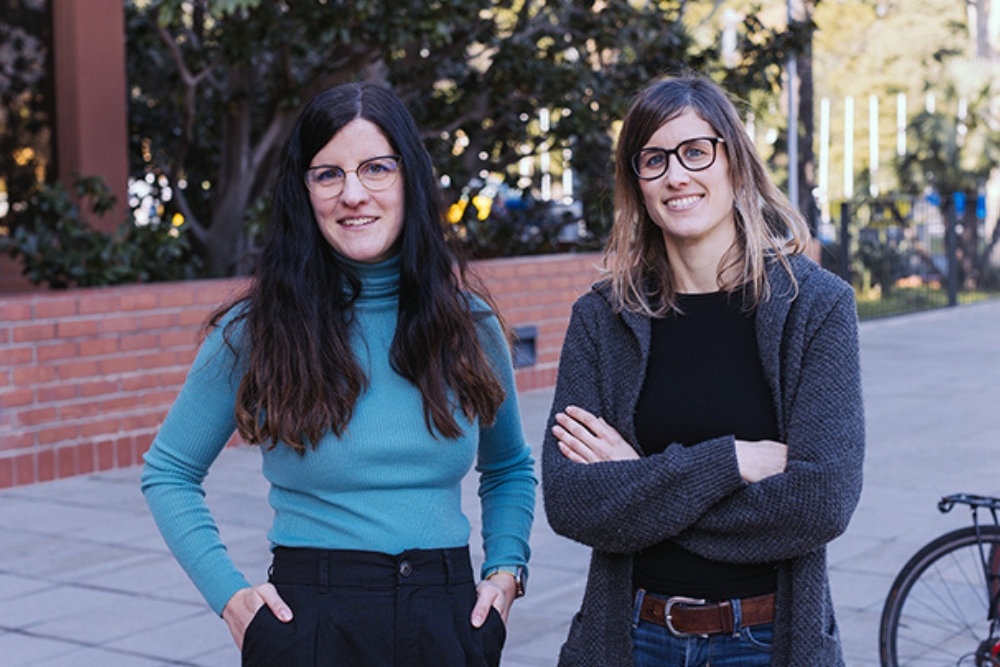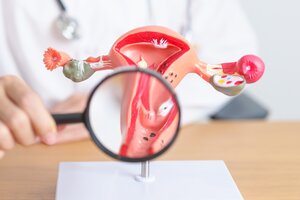New Evidence on the Association Between Endometriosis and Traumatic and Stressful Experiences
An international study involving Marina Mitjans, a researcher at the Sant Joan de Déu Research Institute (IRSJD), the UB Institute of Biomedicine (IBUB), and the Biomedical Research Networking Center in Mental Health (CIBERSAM), has found new evidence linking traumatic experiences and stressful events to endometriosis.
Specifically, the findings indicate that this condition appears to be closely linked to contact trauma, meaning cases where there is direct physical interaction between the victim and the aggressor, such as physical abuse or sexual assault. Moreover, through genetic analyses, it has been discovered that this relationship is independent of genetic predisposition to developing endometriosis. These results, published in the journal JAMA Psychiatry, could be valuable for improving the detection of endometriosis, which affects 190 million women of reproductive age worldwide.
Dora Koller, the first author of the article and a researcher at the Department of Genetics, Microbiology, and Statistics at the UB Faculty of Biology, explains that "while psychological trauma has been associated with endometriosis, until now there was little information on the role played by the type of trauma and genetic predisposition." Koller, who is also a researcher in the Department of Medicine at Yale School of Medicine (United States), points out that "these results challenge established paradigms, as they reveal shared genetic mechanisms that link endometriosis with post-traumatic stress disorder and other types of trauma, while also providing new insights into how different types of traumatic events relate to the disease."
The study also involved Marina Mitjans, a researcher from the same department, the UB Institute of Biomedicine (IBUB), the Sant Joan de Déu Research Institute (IRSJD), and the Biomedical Research Networking Center in Mental Health (CIBERSAM). The other authors are affiliated with the University of Bergen (Norway), the Karolinska Institute (Sweden), the University of Oxford (United Kingdom), as well as the T.H. Chan School of Public Health at Harvard University and Massachusetts General Hospital (United States).
Study with Over 240,000 Women
The research was based on observational and genetic analyses of data from 8,276 women with endometriosis and 240,117 control patients enrolled in the UK Biobank, a biological database of individuals from the United Kingdom. "Our study shows that those with endometriosis were also more likely to report having experienced certain traumatic events compared to healthy individuals," Koller highlights. For example, individuals with endometriosis were 17% more likely to have witnessed a sudden death, 17% more likely to have suffered sexual assault in adulthood, and 36% more likely to have received a life-threatening diagnosis.
To explore the connection between different types of trauma, the researchers conducted a latent class analysis, a research tool used to identify hidden patterns within a dataset. "A higher number of endometriosis cases could be linked to emotional, physical, and sexual trauma," Koller points out.
Post-Traumatic Stress Disorder and Childhood Abuse
The genetic analyses in the research mainly consisted of a Genome-Wide Association Study (GWAS) on endometriosis, as well as an analysis of the interaction between traumatic events and the polygenic risk of endometriosis, an approach that assesses the combined impact of multiple genetic variants on disease development instead of focusing on a single gene. The results of these analyses have revealed that the disease is genetically correlated with various trauma-related situations, with the strongest evidence linked to post-traumatic stress disorder and childhood abuse.
"Childhood trauma-for example, feeling as a child that a family member hated them or experiencing physical abuse within the family-was also linked to endometriosis, highlighting the potential role of early adverse experiences in shaping the risk and progression of the disease," the researcher emphasizes.
Other genetically inferred associations include situations where study participants lacked someone to take them to receive medical care during childhood. According to Koller, this factor is "particularly important" in the case of endometriosis, as having caregivers who ensure access to medical care during this stage of life can influence resilience to stress and the likelihood of seeking medical attention, thereby reducing the chances of delayed or insufficient diagnosis and treatment. "It is possible that those who lack caregiver support are less likely to advocate for their own health," the researcher notes.

Mechanisms Independent of Genetic Predisposition
The results also show that the relationship between genetic risk for endometriosis and trauma does not appear to be due to a direct interaction between genes and the environment but rather to correlations between these two factors. In other words, individuals with certain genetic predispositions might be more prone to experiencing or remembering specific traumatic events, which could influence their risk of developing endometriosis. Koller highlights that "based on the reclassification of endometriosis as a chronic systemic disease with manifestations beyond the reproductive tract-proposed by Hugh Taylor, also a co-author of this study-our findings emphasize how childhood and adult trauma may contribute to the pathogenesis of endometriosis through mechanisms that seem independent of genetic predisposition."
Early Diagnosis Strategy
The links identified between endometriosis and traumatic events align with a previous study by the same research team that associated the disease with depression, anxiety, and eating disorders. These combined findings highlight the importance of evaluating both the physical and mental health of patients with endometriosis.
"Although further confirmation with other cohorts is needed, our results suggest that we could design early detection programs for endometriosis by considering not only genetic factors but also histories of physical trauma or other risk factors. This would help identify and treat the disease in a more comprehensive and effective manner," the researcher concludes.
Reference Article
Koller, Dora; Lokhammer, Solveig et al. «Linking childhood and adult trauma to endometriosis 1 through observational and 2 genetic analyses». JAMA Psychiatry, febrer de 2025. DOI: 10.1001/jamapsychiatry.2024.4694

Individuals with certain genetic predispositions might be more prone to experiencing or remembering specific traumatic events, which could influence their risk of developing endometriosis.
